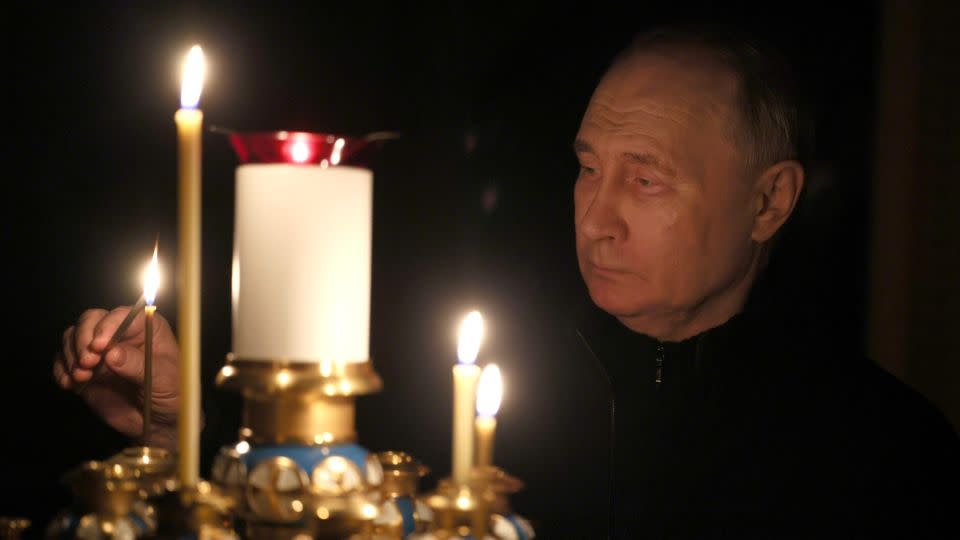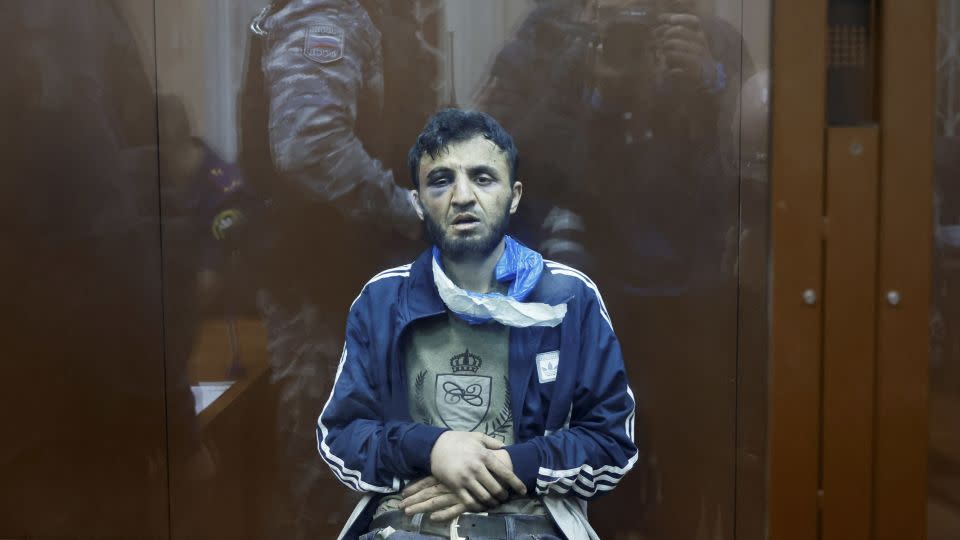Lukashenko undermines Putin’s Ukraine claim on Moscow concert hall attack
Belarusian President Alexander Lukashenko appears to have cast doubt on Russia’s claims that Ukraine was involved in the brutal attack at a Moscow concert hall last week.
ISIS claimed responsibility for the massacre, which killed at least 139 people, and released graphic footage of the incident, but Russian President Vladimir Putin has repeatedly suggested, without evidence, that Ukraine had helped orchestrate it.
Putin on Saturday claimed that a “window” had been prepared for the attackers to escape to Ukraine, which Kyiv has denied.
But Lukashenko, one of Putin’s most loyal allies, on Tuesday appeared to contradict the Kremlin’s claims, saying that the attackers initially intended to enter Belarus rather than Ukraine.
“They could not enter Belarus. Their handlers… knew that it would be a very bad idea to try to enter Belarus, because Belarus immediately reinforced security measures,” Lukashenko said, according to Belarusian news agency Belta.
Lukashenko said he received reports from Russian authorities “minutes” after the attack began and put Belarusian units on combat alert, setting up checkpoints on roads to prevent the attackers entering the country.
“That’s why there was no chance they could enter Belarus. They realized it. So they took a turn and headed to the Ukraine-Russia border,” he said.
The attackers stormed Crocus City Hall in a Moscow suburb on Friday, shooting civilians at point blank before setting the building on fire, causing the roof to collapse while concert-goers were still inside.
Four suspects, who are from the Central Asian republic of Tajikistan but worked in Russia on temporary or expired visas, were detained later Friday night in Russia’s Bryansk region, near the border with Ukraine and Belarus.
In his first national address after the attack, Putin on Saturday alleged that the men “tried to hide and move towards Ukraine, where, according to preliminary data, a window was prepared for them on the Ukrainian side to cross the border.”
Putin on Monday conceded the attack had been carried out by “radical Islamists,” but still tried to pin ultimate responsibility on Ukraine.

Other Kremlin officials have doubled down on the claims. Alexander Bortnikov, director of Russia’s Federal Security Services (FSB), alleged on Tuesday that Ukraine was involved in the “training of militants in the Middle East.”
Ukraine has vehemently denied involvement in the attack and called the Kremlin’s claims “absurd.” Others have speculated why the attackers would try to flee through a heavily militarized section of the border, with a large Russian troop presence.
And Lukashenko, in attempting to promote Belarus’ standing as a reliable ally of Russia, may have inadvertently further weakened Putin’s allegations.
Belta reported that Lukashenko agreed to “seal off its section of the road that could be used by the criminals” when he received intelligence from Russian officials, including Bortnikov, that the attackers were “moving in the direction of Bryansk.”
Lukashenko said he and Putin exchanged phone calls, claiming he accepted Putin’s request to help seal off the roads into Belarus. “Absolutely. We are doing everything,” Lukashenko replied.
He said he shared the information because he was aware that Putin had been reproached for his response to the tragedy. Putin had been criticized for not addressing the nation until more than 19 hours after the attack began.
Instead, Lukashenko said, he and Putin “did not sleep for 24 hours,” as they worked to address the threat.

A total of 11 people have been arrested in connection with the attack on the concert hall, Russian officials said. Four appeared in a Moscow court on Sunday and three on Monday. It’s not clear if the remaining four are still in detention or have appeared before a judge.
Three of the Tajik suspects were bent double as they were marched into a Moscow courtroom on Sunday, while the fourth was in a wheelchair and appeared unresponsive. They were charged with terrorism and face a maximum sentence of life in prison.
The men looked battered and bruised as they were brought into the courtroom. Videos circulated widely on Russian social media appeared to show some of them being violently interrogated, including one that appeared to show the use of electrocution. In another video, a suspect had part of his ear cut off and stuffed in his mouth.
For more CNN news and newsletters create an account at CNN.com

 Yahoo News
Yahoo News 
